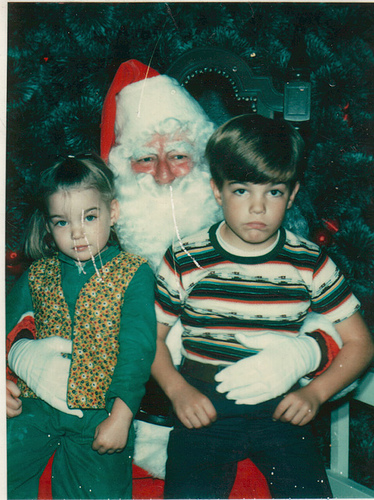 “I keep meaning to clean my desk, but I put it off – again – I’m so bad.” These words were spoken to me today by someone I love – a lot.
“I keep meaning to clean my desk, but I put it off – again – I’m so bad.” These words were spoken to me today by someone I love – a lot.
We all talk to ourselves this way habitually.
Robert Bly, poet, author, and activist writes:
“When we were one or two years old we had what we might visualize as a 360-degree personality. Energy radiated out from all parts of our body and all parts of our psyche. A child running is a living globe of energy. We had a ball of energy, all right; but one day we noticed that our parents didn’t like certain parts of that ball. They said things like: “Can’t you be still?” Or, “It isn’t nice to try and kill your brother.” Behind us we have an invisible bag, and the part of us our parents don’t like, we, to keep our parents’ love, put in the bag. By the time we go to school our bag is quite large. Then our teachers have their say: “Good children don’t get angry over such little things.” So we take our anger and put it in the bag. By the time my brother and I were twelve in Madison, Minnesota we were known as “the nice Bly boys.” Our bags were already a mile long.”
This is birth of the inner critic, of “ da judge”, and of labeling ourselves “I’m so bad” – on and on. And that’s only the beginning. We keep putting stuff in the bag (the stuff which we fear won’t gain the approval of others) our whole life long, until who we actually are, gets lost inside. If we want to get our real selves back we’ve got to open the bag and lovingly take responsibility for and ownership of what’s in there.
Just because that voice is inside your head doesn’t mean it’s right, or even that it’s your friend. If it speaks to you other than with love, compassion, and patience, it’s not your friend.
Cheri Huber, in a wonderful and accessible little book called “There Is Nothing Wrong With You” presents these, and many more useful insights.
She notes a number of “common wisdoms” which support the inner critic. When we think about these things, do we really believe these are actually true?
-It is more blessed to give than to receive.
-You can’t teach an old dog, new tricks.
-You get what you deserve.
-Two heads are better than one.
-Some things are just meant to be.
-If you are not the lead dog, the view never changes
-Children should be seen and not heard.
-Do as I say, not as I do.
– Add your own
Then of course, there’s that song. You know the one. I’ve been hearing (but not listening) to it all my life. I just listened. You know what? I think this is a really terrible song.
The pertinent lyrics are just below, as is the link to the song itself if you would like – to listen:
“You better watch out!
Better not cry!
Better not pout!
I’m telling you why,
Santa Claus is comin’ to town.
He’s making a list
and checking it twice.
He’s going to find out who’s naughty and nice.
Santa Claus is comin’ to town.
He sees when you’re sleeping.
He knows when you’re awake.
He knows if you’ve been bad or good.
So be good for goodness sake!
You better watch out!
Better not cry!
Better not pout!
I’m telling you why,
Santa Claus is comin’ to town.”
Is this is the way to raise joyful, authentic kids?
This message is not about unconditional love. This is about rewarding “acceptable” behavior and punishing “naughty” behavior. If you “behave” (are “good”) you get the swag. Worse still: if, as some believe, Santa is actually a metaphor for God, is this a loving God?
![]() Practice Tip:
Practice Tip:
“I didn’t call my mom. I’m so bad.”
You’re not “bad”. You didn’t call your mom. That’s all
“I didn’t go to the gym today. I’m so lazy.”
You’re not “lazy”. You didn’t go to the gym today. That’s all.
“I served soup to 600 homeless people today. I’m so good.”
You’re not “good”. You served soup today. That’s all.
“I skipped my group meeting today. I’m so unreliable.”
You’re not “unreliable.” You skipped group. That’s all.
These, and all the other labels we hang on ourselves are extra. They are false – and they harm us. Try to notice when you do this, so you can stop it.
And finally, ask yourself honestly: “If there was an actual person in my life talking to me the way I talk to myself, would that person still be in my life?”
Please, be kind to yourself
Metta,
Michael